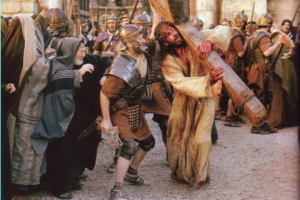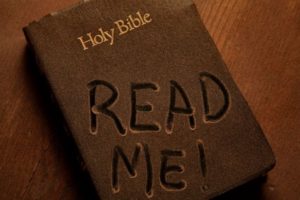The story of Gideon is complex and exciting, relatable and extraordinary, and compresses into 3 short chapters what will prove to be the struggle of Israel until the coming of Christ. The story is composed of 3 distinct movements (like musical movements) that are aligned conveniently into 3 separate chapters (Judges 6-8). Beyond the three major movements, is the greater arc of the Book of Judges which demonstrates the tension between God and His people. The tension between protagonist and antagonist (God and Israel respectively) is no more evident than in the story of Gideon. It all begins, though, with a look into the personal faith of Israel through the eyes of Gideon.
In the first movement, we open to a now familiar scenario where the Israelites have turned from God and are being oppressed by a foreign entity: the Midianites, a coalition of “eastern peoples” whose numbers reach over 100,000 armed warriors (Judges 8:10). What is different about this movement from the previous songs of the Judges is we get a look into the personal calling of a Judge.
It is the look into this generation’s “paragon of faith” that we can understand the heart of the people. Gideon is a man who knows of and perhaps even respects who God is. The stories of the deeds of God have been passed down to Gideon. God to Gideon though is some far off or ancient deity who accomplished some impressive things generations ago but hasn’t done anything for him (Judges 6:13). What this says is that the knowledge of God is passed on from generation to generation but not the faithful relationship. The younger generation does not “know” God in the sense of a relationship. This is why it is important we see God appear in such a personal manner with Gideon.
The main idea of this first movement is that God is personal. This is emphasized in the allowing Gideon to worship him personally (Judges 6:19-24). Then God calls Gideon into a personal act of rebellion against Baal (Judges 6:28-32). Following this act up, God allows a personal test by Gideon with the fleece (Judges 6:36-40). God isn’t acting for anyone else’s benefit but Gideon’s, and these actions demonstrate one of the larger tensions, between God and His people, which is that they have no personal relationship. This lack of personal relationship leads the Israelites to forget the things that God does not.
That is the greater arc of the story of Gideon. God remembers that which we do not. Both the movement and the greater arc, I find very relatable to us today. We all want to be individuals and have our own individual experience with God. In this story, we get to see God do just that, be individual. But that also allows us to see how forgetful we are of the great acts God has performed in our lives. Our faith can be rocked by the simplest of things because we do not remember all that God has done for us, personally. The nice thing about God acting communally is that we all remember what He did, and we can help each other when we forget.
Without a personal interest in God, we only have the intellectual knowledge of God which does not allow us to pass on our faith because, frankly, we have none. We only have knowledge. Knowledge is not what saves. In James 2:14-26, we can learn that the demons know much about God, but they do nothing for Him. The first movement of Gideon reveals that knowledge of God alone does not save us.
Gideon (First Movement)
Reading Time: 2 minutes




